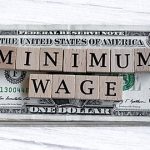
For decades, providing students with the highest quality of education was a key objective in many countries because doing so would facilitate scientific progress and innovation, support social and economic development, and raise living standards. In recent years, however, the woke Left has garnered an increasingly prominent role in the education systems of many Western countries, and its adherents have been significantly altering many of the objectives and accepted norms at institutions of learning.
In particular, adherents of this dogma have been aggressively pushing the notion that teachers should be permitted to distract, confuse, or influence their students by discussing their personal beliefs, ideas, and private activities and choices in the classroom.
Moreover, the woke Left’s indoctrination of young children involves advocating for racism against the white population, as well as the promotion of sexually explicit LGBTQ+ (lesbian, gay, bisexual, transgender, queer/questioning plus) content. For example, they endorse making books available in the libraries of elementary and high schools that contain graphic details “about performing sexual acts and include scenarios of pornography, rape, and incest.”
The increasingly prominent role of the woke Left could ultimately end up destroying the Western education system, which is not the product of one group of people, one generation, one ideology, one discipline, one government, or one nation. Across history, many talented people of great repute and distinguished character have contributed to the development and formation of the education system and the evolution of educational ideas in Western societies. These individuals came from diverse backgrounds and areas of expertise.
In fact, some of them had to battle the darkness of their age in order to enlighten the people, including Johann Gottlieb Fichte (1762–1814), Friedrich Wilhelm August Fröbel (1782–1852), Johann Friedrich Herbart (1776–1841), Johann Gottfried von Herder (1744–1803), Wilhelm von Humboldt (1767–1835), Immanuel Kant (1724–1804), Gotthold Ephraim Lessing (1729–81), Johann Heinrich Pestalozzi (1746–1827), Jean-Jacques Rousseau (1712–78), Johann Christoph Friedrich von Schiller (1759–1805), and Friedrich Daniel Ernst Schleiermacher (1768–1834), just to name a few.
These visionaries, along with numerous others, inspired the foundations of the modern Western education system, including kindergarten programs, elementary schools, high schools, training schools for teachers, and universities. Despite differences between their respective views and specializations, they were in agreement that the development of an effective system of education was a serious undertaking that required great commitment, effort, and responsibility. Among their main recommendations was that teachers should be selected from a pool of people with the best qualities since they would be sharing their thoughts and advanced knowledge with the generations and would be responsible for guiding society in the future.
Johann Gottlieb Fichte was a renowned philosopher of German idealism and nationalism who contributed to the development of the education system in Germany during the nineteenth century, in addition to being one of the founders, and later the rector, of the University of Berlin. According to Fichte, teachers must have “strict watchfulness over their words and actions” if they want to encourage the highest development of their students. He believed that it was in the interest of humanity that teachers should strive for “the purest morality and acquire sound practical wisdom.” From an early age, the aspiring teacher ought to be “placed in a position where it is possible and necessary for him to acquire this practical wisdom and delicacy of feeling, and that this cultivation of mind and character should be a peculiar element in the education [of future generations].” Rousseau supported similar ideas, arguing that the role of the teacher was “to turn the child’s attention from trivial details and to guide his thoughts continually towards relations of importance which he will one day need to know, that he may judge rightly of good and evil in human society.”
Before the woke Left had such an influential role in the field of education, teachers were expected to keep the details of their personal lives and choices confined to their private spheres. This notion was supported by Humboldt, reformer of the Prussian school system, when he stated that the teacher should “rise completely above any apparent impediments in his own body, temperament or habits etc.” Meanwhile, Fichte argued that the role of the teacher is “imperceptibly to familiarize the youth with the high and noble before he is able to distinguish these from the vulgar—to accustom him to these, and to estrange him from the low and ignoble.”
He was concerned that children are very likely to embrace the perverse and vulgar ideas and actions of their teachers on account of their innate desire to seek approval from figures in positions of authority that command their respect. At this point, they would also be indoctrinated into believing that the acceptance of such ideas and actions is a sign of social progress.
According to Fichte, teachers had to avoid teaching vulgar and ignoble ideas because they can often awaken and stimulate the animal nature of human beings while simultaneously degrading the souls, spirits, and minds of children and youth. He further explained that regular exposure to the vulgar and ignoble ideas and behaviors of a teacher could potentially dull the minds of students, who could also develop a habit of “spiritual torpor.”
Thus, he insisted that the encouragement of vulgar, perverse, ignoble, and dishonorable ideas eventually robs “man of respect for himself, of faith in himself, and of the power of reckoning with confidence upon himself and his purposes.” Fichte further claimed that the teaching of vulgar and ignoble ideas in the classroom leads to children experiencing “self-forgetfulness” and becoming slaves to the opinions of others, instead of developing into self-reflecting, self-determining, independent, and free beings. Eventually, they could lose faith in their own wills, thoughts, and consciences, or even abandon their religions, cultures, customs, and traditions in multicultural societies. Fichte concluded that the unworthiness of a teacher should be “clearly recognized” when it exists. It should never be concealed or respected because such an individual could have a tremendous detrimental impact on the development of his pupils.
In recent years, it appears as though the woke Left has committed itself to undoing all of the rational, constructive, and sensible work that has been undertaken by previous generations over centuries, which was aimed at designing the best possible education system that prioritized the interests, needs, and development of pupils. That is to say, adherents of this dogma do not seem to care about providing children with a proper education during their formative years, which would enable them process knowledge in infinite ways, become self-determining individuals, make better choices over the course of their lives, and develop into contributing members of society.
At the moment, it seems as though all of the societal changes that are being rapidly implemented in the name of some distorted versions of progress, inclusivity, equity, and diversity demonstrate that the enlightenment of the past is not able to penetrate the darkness of the woke Left. Ultimately, the degradation and eventual destruction of the Western education system being driven by the woke Left will elevate an unqualified, irresponsible, and corrupt generation of professionals to leadership positions in every area of life, which could quietly bring about the collapse of the nation-state.
Nelson Mandela once said, “Education is the most powerful weapon which you can use to change the world.” It seems that the globalist backers of the woke Left have recognized this and are weaponizing education to induce self-forgetfulness, eliminate freedom, erase history, diminish cultural, traditional, and religious beliefs, and eventually destroy the nation-state in order to facilitate the transition toward a system of multistakeholder governance.






